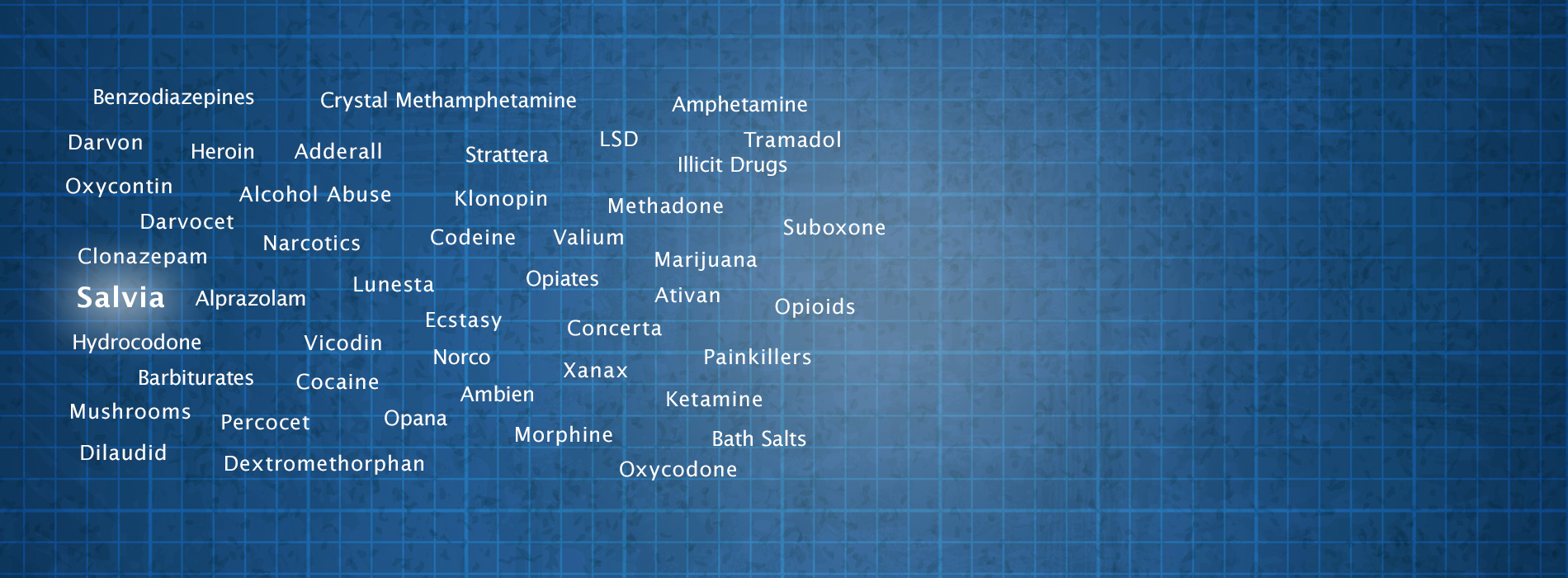Salvia
Salvia divinorum is a southern Mexican herb that is in the mint family. Used for hallucinogenic experiences (trips), Salvia can be ingested by chewing the leaves, or the juices can be extracted and drank. Many smoke it as cigarettes or in a pipe. Although there is limited information regarding this drug, experts do know that Salvia leads to mild psychosis and is used as a party or social substance.In the U.S. there has been a rise in the use of Salvia, with a reported 3 percent of young me ages 18 to 25 reporting use of it within the last 12 months. The recent statistics show that Salvia being used twice more than LSD and almost as frequently as Ecstasy. There are numerous videos on YouTube that are extremely popular, having up to 500,000 views or more.
Salvia Legality
Salvia is currently not regulated under the Controlled Substances Act, but many countries and states are attempting to stop the use of it. This substance is illegal in Denmark, Norway, Australia, Sweden, Italy, Switzerland, Spain, Germany, Belgium, and Finland. However, it is legal in France, Austria, and some states of the U.S. Currently, states that have banned Salvia include Delaware, Florida, Illinois, Kansas, Louisiana, Missouri, Montana, North Dakota, and Oklahoma.
Your Brain on Salvia
The potent activator and active ingredient of Salvia is salvinorin A, which targets nerve cells called kappa opioid receptors. These receptors are not the same ones that that are activated by heroin and morphine. Salvia is a hallucinogen, but it does not affect serotonin receptors like LSD or psilocybin do. Rather, its effects are totally different than other hallucinogens. The effects are only short-lived, but intense, and they last for around 30 minutes. These include feelings of detachment, mood and body sensations, changes in visual perception, emotional instability, and an altered perception of external reality and self. These effects together decrease the person’s ability to interact with the world around him or her.
Both the physical and psychological health effects of salvia are not yet investigated. Various animal experiments show many serious negative effects of salvinorin A on memory and learning, but there is not much evidence that the drug causes long-term mental health problems in humans or even dependence. Due to both short-term and long-term effects of Salvia, it is dangerous for someone to operate a vehicle while under the influence. Also, because Salvia leaves the user incapacitated while it is in the body, there is a risk for serious injury.
The raw herb Salvia divinorum is not potent itself, but the psychoactive chemical (salvinorin A) is extremely potent, with a thresh hold effect at around 200 micrograms. This herb is not toxic, and is not associated with overdose or death. Also, Salvia has a reverse-tolerance effect, where the substance gives a better “high” with each use. Around 5 to 10 percent of the population does not receive any effects from Salvia. Most users use heat to vaporize this drug for inhalation and best effects.
Resources
Salvia. National Institute on Drug Abuse. September 30, 2008.http://www.drugabuse.gov/PDF/Infofacts/salvia07.pdf
Salvia Divinorum. Office of National Drug Control Policy. September 30, 2008.http://www.whitehousedrugpolicy.gov/dfc/files/salvia.pdf

